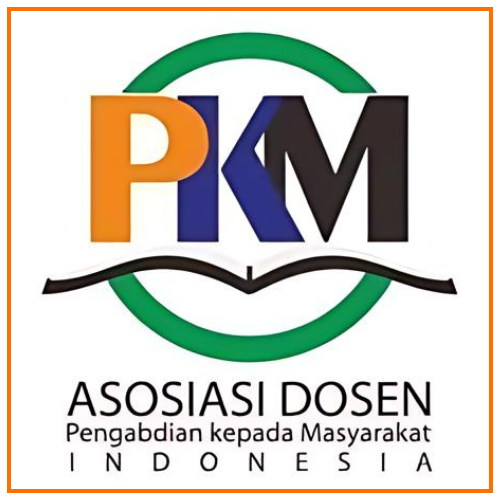Conquering Communication Barriers: The English Quarantine Al Badriyah Program to Enhance Speaking Skills
Abstract
Amidst the rapidly evolving global landscape, proficiency in English language skills has become indispensable for accessing information, facilitating effective communication, and engaging in global interactions. This necessity is particularly pronounced for students in Lombok who actively participate in diverse sectors such as agriculture, academia, and trade. Understanding the importance of English proficiency in these contexts, this study explores the communication barriers experienced by students during their learning process. It investigates the underlying factors that impede the development of their speaking skills. The qualitative study involved eighteen participants enrolled in the English Quarantine Al Badriyah (EQAB) Program, with eight selected as primary informants for detailed interviews. Data collection methods included closed-ended questions and semi-structured interviews, which were meticulously transcribed and analysed using data reduction, data display, and conclusion-drawing techniques. The research revealed several significant barriers hindering students’ English-speaking skills, including nervousness, lack of vocabulary, and shyness. Conversely, the study identified motivation factors, positive feedback and agreeable activities as pivotal elements that could effectively enhance students’ speaking proficiency. This study underscores the critical role of English language proficiency in empowering students to overcome barriers and actively participate in global discourse. By addressing these challenges and leveraging supportive factors, educators and stakeholders can better facilitate the development of robust English communication skills among students in diverse educational and professional settings.
Keywords: Communication Barriers; Enhancing English; Speaking Skills.
Full Text:
PDFReferences
Ahsan, M., Asgher, T., & Hussain, Z. (2020). The Effects of Shyness and Lack of Confidence as Psychological Barriers on EFL Learners’ Speaking Skills: a Case Study of South Punjab. Global Regional Review, 2, 109-119.
Alnatour, A. (2018). Students’ Level of Anxiety Towards Learning English as a Foreign Language: Students’ Perspectives. US-China Foreign Language, 16(3), 131-140.
Alshenqeeti, H. (2018). Motivation and Foreign Language Learning: Exploring the Rise of Motivation Strategies in the EFL Classroom. International Journal of Applied Linguistics & English Literature.
Anshori, M. I. (2023). Improving Students’ Speaking Ability through Morning English Program Extracurricular Activities in Indonesia. Educational Challenges, 28(2), 22-36.
Apriyanti, H. (2018). The Effectiveness of “Find Someone Who” Game Toward Students’ Speaking Skill (An Experimental Research of Seventh Grade Students Junior High School at SMP Negeri 1 Kelapa Dua Tangerang) (Doctoral Dissertation, Universitas Islam Negeri" Sultan Maulana Hasanuddin" Banten).
Ariyani, E. (2021). Pelatihan Bahasa Inggris Dasar Bagi Anak Usia Dini di Pesisir Pantai Ampenan-NTB. Jurnal Pengabdian Kepada Masyarakat Radisi, 1(3), 240-248.
Firdaus, F., & Melani, M. (2024). Students’ Perception of Applying Teacher-in-Role During English Learning Process: A Descriptive Study of Middle School Students. JELITA: Journal of Education, Language Innovation, and Applied Linguistics, 3(1), 41-52.
Hadi, M. J., Rizka, B. H., & Tarmizi, T. (2020, August). “I Feel Nervous and Lose My Ideas When Having Presentation”: Mapping Senior Students’ Challenges in Academic Oral Presentation in English. In 1st Annual Conference on Education and Social Sciences (ACCESS 2019) (pp. 20-23). Atlantis Press.
Indrawati, I. (2020). Developing Students’ Speaking Skill of Grade Xi at Sman 2 Tolitoli by Using Describing Picture. Jurnal Madako Education, 4(1).
Januariza, Y., & Hendriani, S. (2016). Student’ Anxiety in Learning Speaking. Proceedings of ISELT FBS Universitas Negeri Padang, 4(2), 468-474.
Kardiansyah, M. Y., & Qodriani, L. U. (2018). English Extracurricular and Its Role to Improve Students’ English Speaking Ability. RETORIKA: Jurnal Ilmu Bahasa, 4(1), 60-69.
Khaerana, A. S. A., & Nurdin, N. N. (2018). The Effectiveness of Story Telling and Story Reading Methods in Teaching Speaking. ETERNAL (English, Teaching, Learning, and Research Journal), 4(2), 181-199.
Kumar, T. (2021). Desire to Learn, Learn to Shine’: Idolizing Motivation in Enhancing Speaking Skill Among L2 learners. Kıbrıslı Eğitim Bilimleri Dergisi, 16(1), 411-422.
Miles, M. B., & Huberman, A. M. (1994). Qualitative Data Analysis: An Expanded Sourcebook. Sage.
Moleong. L.J. (2015). Metodologi Penelitian Kualitatif. Bandung: PT Remaja Rosdakarya Offset.
Muthmainnah, M., Marzuki, A. G., Santiana, S., Erizar, E., & Nursyam, N. (2022). Utilizing Smartphone-Based Pinterest Applications in Developing EFL Students Speaking Skills in Indonesia. JEES (Journal of English Educators Society), 7(2), 205-209.
Nasution, B., Hasibuan, A. L., & Tambusai, A. (2022). The Student’s Barriers in Speaking English at STIKes Darmais Padangsidimpuan. International Journal of Educational Research Excellence (IJERE), 1(1), 94-97.
Nasution, S. (2018). Penggunaan Bahasa Inggris Secara Maksimal untuk Menyongsong Masyarakat Ekonomi Asean (Mea) 2025. Bisnis-Net Jurnal Ekonomi dan Bisnis, 1(1).
Pauziyah, R., & Zifafiyyah, L. (2024). The Use of Bilingualism Strategy as A Communication Tool in English Learning. JELITA: Journal Of Education, Language Innovation, And Applied Linguistics, 3(1), 64-73.
Prasetio, R. (2020). Speaking Activities Used in English Community of English Study Program in Enhancing Students’ Speaking Skill. ELT-Lectura, 7(2), 103-112.
Razi, F., Muslem, A., & Fitrisia, D. (2021). Teachers' strategies in teaching speaking skill to junior high school students. English Education Journal, 12(3), 399-415.
Sallang, H., & Ling, Y. L. (2019). The Importance of Immediate Constructive Feedback on Students’ Instrumental Motivation in Speaking in English. Britain International of Linguistics Arts and Education (BIoLAE) Journal, 1(2), 1-7.
Sampelolo, R., Tandikombong, M., Pongsapan, N. P., & Lura, H. (2021). A Study of Speaking Common University Learner Barriers in Indonesian Context. Klasikal: Journal of Education, Language Teaching and Science, 3(3), 127-131.
Santiana, S., & Marzuki, A. G. (2022, October). YouTube: a Modern Breakthrough of Autonomous Learning to Hone Speaking Skills. In Proceeding of International Conference on Islamic and Interdisciplinary Studies (Vol. 1, pp. 23-28).
Saragih, D. K. (2022). Dampak Perkembangan Bahasa Asing terhadap Bahasa Indonesia di Era Globalisasi. Jurnal Pendidikan Tambusai, 6(1), 2569-2577.
Shadmanov, K. B., Davlatova, M. H., Ostonova, S. N., & Radjabova, A. T. (2020). English Renaissance: Transformation of 61 Philosophy Understanding as a Factor of Information Culture Development of the Epoch. Cross-Cultural Studies: Education and Science, 5(1), 61-67.
Siregar, U. D. (2023). Bahasa Inggris sebagai Bahasa Komunikasi Bisnis di Era Globalisasi: Persepsi Pebisnis dan Karyawan. JBSI: Jurnal Bahasa Dan Sastra Indonesia, 3(01), 129-135.
Sukmojati, E., Ribahan, R., & Rahmat, H. (2023). Strategies and Challenges in Teaching Speaking by English Tutors: A Study in Madani Super Camp English Classes. JELITA: Journal of Education, Language Innovation, and Applied Linguistics, 2(2), 111-121.
Syafryadin, S., & Santiana, S. (2023). Online English Speaking Instruction in Junior High Schools: Readiness and Obstacles. Englisia: Journal of Language, Education, and Humanities, 10(2), 243-254.
Zhou, S., McKinley, J., Rose, H., & Xu, X. (2022). English Medium Higher Education in China: Challenges and ELT support. ELT Journal, 76(2), 261-271.
DOI: https://doi.org/10.37058/jelita.v3i2.11405
Refbacks
- There are currently no refbacks.








Journal of Education, Language Innovation, and Applied Linguistics
Lembaga Penelitian, Pengabdian Kepada Masyarakat dan Penjaminan Mutu Pendidikan (LP2M-PMP) Universitas Siliwangi
Jalan Siliwangi Number 24, Kota Tasikmalaya - 46115
West Java, Indonesia










